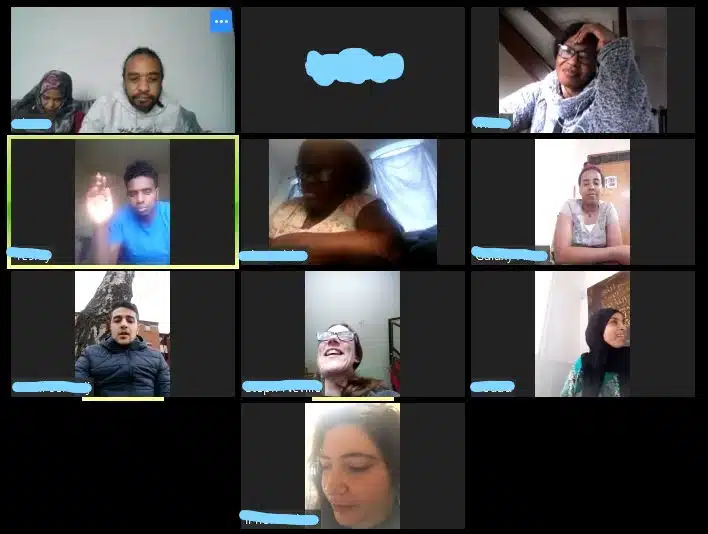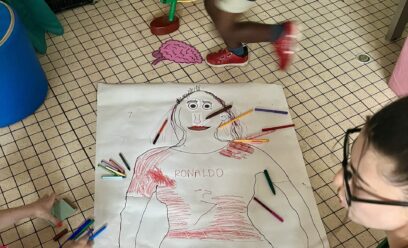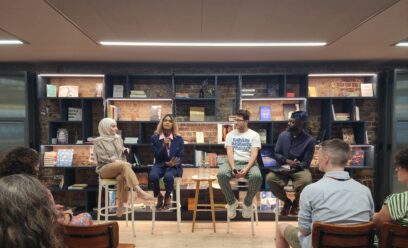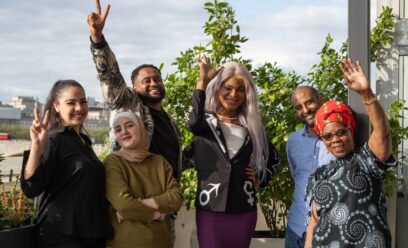11 positive stories from migration charities making a difference during Covid-19
Posted by IMIX on May 1, 2020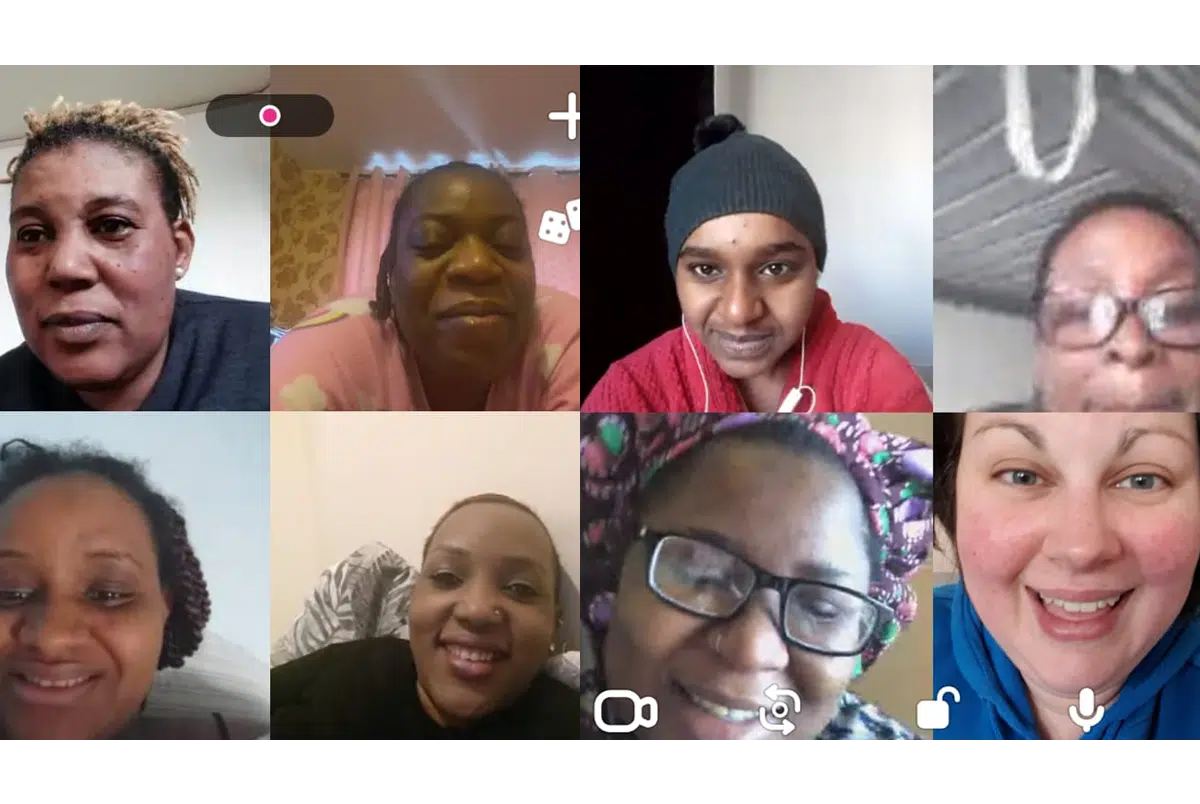
Despite the hit of the pandemic and the lockdown enforcement, charities and NGOs working with people from refugee and migrant backgrounds have not stopped supporting their networks. They are carrying on with their campaigns in innovative and original ways, and many of them are now working even harder to offer maximum support to their communities during such difficult times.
Here are some of the stories that they told us, which show their amazing work and so many positive outcomes.
1. Sisterhood always wins
In the past few weeks, Women for Refugee Women (WRW) and their amazing volunteers have been regularly calling around 300 refugee and asylum-seeking women. They also provide further support like specialist immigration advice, emergency hardship grants and help with accessing technology to stay connected during the lockdown. Mary, a member of their network, said: “Women for Refugee Women is always here for me. It means so much that you are thinking about me. Just hearing a friendly voice has brightened my day!” Also, Rainbow Sisters, the charity’s LGBT+ group and WRW’s drama group are holding weekly video calls to support one another and continue performing their poetry, plays and songs. It is great to see so much solidarity as women across our society pull together through this challenging time.
2. Creative students
STAR’s student groups are carrying on with their great work and finding creative ways to do it online. Northampton STAR volunteers launched a Zoom conversation club to continue their English teaching project virtually. Participants can catch up with each other, share jokes and practice the language. The group in Kent organised a virtual screening of the BAFTA-winning documentary, For Sama, Goldsmiths STAR published the first issue of EKO a magazine written by people with lived experience, and in Glasgow, the students donated food parcels, toiletries and phone credits to support destitute asylum seekers in this difficult time.
3. Hosting a refugee during the lockdown
Action Foundation’s team has been training some amazing hosts for asylum seekers and refugees. These exceptional times are revealing just how important their great work is. Marian, one of their volunteers started her very first experience of hosting in her home week before the lockdown. “I’m very grateful that during a time in which I could have been very isolated, I have been able to help someone and at the same time enjoy their company,” she wrote. “Hosting is a humbling experience; it makes me very grateful for what I have and teaches me not to take it for granted.”
4. Fundraising to support refugee communities
Donate4Refugees has raised over £12,000 with their emergency Covid-19 appeal in collaboration with lots of other UK regional volunteer groups like Chorleywood 4 Refugees, Together100 and Herts for Refugees. “We’re all exceptionally passionate about helping refugees, desperately ashamed of their treatment by Europe, and horrified by the lack of humanity being shown. Covid-19 leaves them the most vulnerable people in the world,” said Amber Bauer, founder of the NGO. Money raised so far will be invested in food and hygiene for refugee communities in France, Greece and the Balkans. Also, donations will cover the costs of personal protection equipment for their front-line volunteers across Europe.
5. Loving hammocks!
One of the volunteers at Baca Charity, which provides accommodation and holistic support for unaccompanied asylum-seeking children, decided to design and make a stand-alone hammock with a group of young people at one of their residences. They did an amazing job from design to production and now the hammock is hanging in the garden of their house. A really positive afternoon’s activity during the lockdown and a great achievement!
6. Keeping in touch and engaging with the community
The Helen Bamber Foundation team has dedicated their time, energy and creativity in making sure that their services are delivered during the epidemic and they also developed new ways of engaging and keeping in touch with their network. They now provide, on a weekly basis, virtual therapy sessions and symptom management for their clients, many of which have complex PTSD. They have also moved their English, photography, art, yoga and textile classes online. They reported that many of their clients are very proactive themselves, volunteering for their communities, joining local groups and checking in with each other.
7. Running a marathon for those in need
Citizens UK are finding innovative ways to support their communities. As the London Marathon could not take place this year, last Sunday they had a vicar in Lewisham running 26 miles on a treadmill to raise money for the people in need in his borough. All while leading a live-streamed, virtual Sunday service for his flock. The money raised, will provide food parcels, IT equipment, and an emergency hardship fund for local families struggling as a result of the pandemic.
What a brilliant effort!!! ? @reveddstock ran a lockdown marathon wearing his collar from his vicarage as part of @lewishamcitz to raise money for neighbours in #Lewisham who are struggling through the crisis.
Still time to donate: https://t.co/abZn6ky665 https://t.co/sHYkApA2jw
— Citizens UK (@CitizensUK) April 26, 2020
8. New laptops
With digital communication crucial to keeping in contact and up-to-date during the pandemic, it’s difficult to imagine coping without being able to get online. Unfortunately, many of the young unaccompanied refugees and asylum seekers that the Jewish Council for Racial Equality (JCORE) supports with their JUMP project have not been provided with internet access in their accommodation. To alleviate this, JCORE has launched an emergency appeal, and thanks to the generosity of their supporters, they have been able to provide these young people with laptops and Wi-Fi, ensuring that they can stay in touch with their families and keep up with their studies.
9. Online campaigning against detention
Even Covid-19 cannot hamper the determination of Freed Voices’ members, the experts by experience group supported by Detention Action, who are fighting for the rights of people in immigration detention. They have been doing some excellent online campaigning, planned and co-ordinated via regular virtual meetings. They also wrote an open letter to the Home Secretary raising concerns about the impact of an outbreak in detention centres and calling for all those being held under immigration powers to be released during the pandemic. They have also submitted key evidence to the Home Affairs Select Committee.
10. Donating bikes
With official guidance in place to avoid gatherings, it is recommended to limit travelling on public transport. So The Bike Project, a charity helping refugees to become confident cyclists, has opened a Covid-19 emergency appeal to donate bicycles to refugees. A great idea, at this very uncertain time, bikes can definitely help all of us get out and move more safely!
11. Virtual Storytelling
Stories of Hope and Home, which aims to bring together asylum seekers people and with refugee backgrounds by creating a safe space for them to explore their stories, has discovered new depths of appreciation for the ways they can come together across a phone screen. Thanks to their funders’ generosity, they have provided data to their network to facilitate participation in their group phone calls. They are now meeting twice a week with an average attendance of ten people of different ages, genders, faiths, nationalities, and cultures coming together to talk, learn, create and share. “It isn’t the same as being together in shared physical space,” explained the group. “But we are still a community who care deeply about each other.”
Let’s celebrate these amazing volunteers, charities, organisations, fundraisers, donors and workers all supporting those who most need it in this current tough situation. We are so inspired – thank you all!



